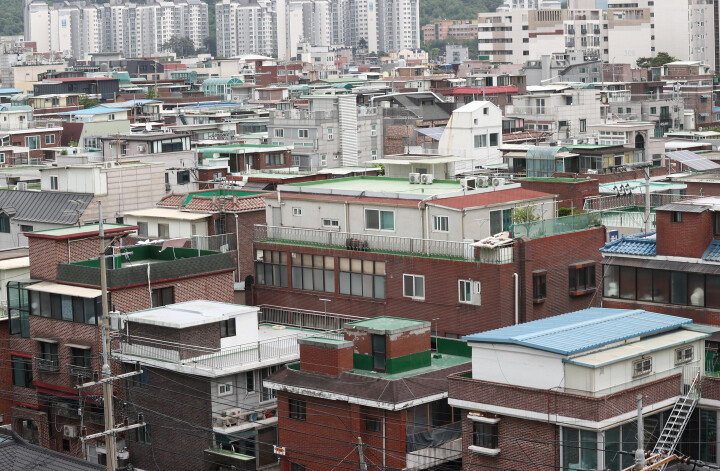
Seoul, South Korea – Rent prices for apartments, villas, and officetels in Seoul have been steadily climbing due to a combination of rental fraud scandals and a severe housing shortage. Notably, high-end apartment rentals have seen a significant uptick.
According to data released by the Korea Real Estate Board on Tuesday, Seoul's apartment rent price index rose for the 12th consecutive month in December, reaching 107.97. Compared to January of the same year, this represents a cumulative increase of 2.44%.
Concurrently, the rent price index for terraced houses and multi-family houses hit a new high of 104.93, marking a 23-month streak of increases. This figure signifies a cumulative rise of 2.38% compared to the previous year.
Officetels also followed suit, with the rent price index reaching 101.7, indicating continued upward momentum. Compared to December 2023, this represents a year-on-year increase of 1.7%.
A notable trend in the apartment market is the surge in high-end rental contracts. From January to December last year, Seoul recorded 1,385 apartment rental deals with monthly rents exceeding 5 million won.
When examining new contracts, high-end rental deals increased by 3.8% to 1,133 in 2024 compared to 1,091 in 2023.
In Seoul alone, 23 apartment contracts with monthly rents exceeding 5 million won were signed this month. For instance, a 124.02 square-meter unit at Raemian Chellitus in Ichon-dong, Yongsan-gu, was renewed at a monthly rent of 11 million won with a deposit of 100 million won.
Two new contracts were even signed with monthly rents exceeding 10 million won. A 244.54 square-meter unit at Banpo Jaian in Banpo-dong, Seocho-gu, was leased for 10 million won per month with a deposit of 15 billion won, and another 124.02 square-meter unit at Raemian Chellitus in Ichon-dong, Yongsan-gu, was rented for 10 million won per month with a deposit of 100 million won.
Experts predict that rents will continue to rise as the housing shortage worsens. According to housing statistics released by the Ministry of Land, Infrastructure, and Transport in November, the number of non-apartment housing permits decreased by 29.6% year-on-year to 33,583 units.
During the same period, the number of housing starts declined by 21.6% to 31,223 units, and the number of housing completions dropped by 37.7% to 38,138 units. Given the 2-3 year lag between housing starts and supply, a severe shortage of villas is expected in the coming years.
Kim In-man, director of the Kim In-man Real Estate Economic Research Institute, explained, "As mortgage loans for apartments have been tightened, tenants have found it difficult to increase their deposits, leading to a rise in monthly rental agreements with security deposits (semi-rent). For those with ample cash, renting is more advantageous than owning a home as they can invest their money elsewhere. These factors combined are contributing to a shift towards semi-rent and rental-only housing."
[Copyright (c) Global Economic Times. All Rights Reserved.]






























